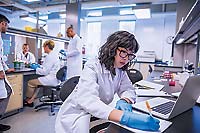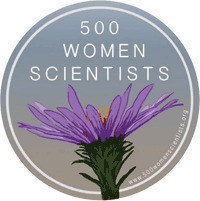Since the recent tragic deaths of George Floyd, Ahmaud Arbrey, and Breonna Taylor, conversations around antiracism have grown louder as more and more voices join in. Scientists are contending with their own role in injustice, discrimination, and wrong doing especially as those things have intersected with race. Quietly, science has moved away from theories that allowed for craniometry, eugenics, and the “g factor”, which buoyed pseudo-scientific white supremacy and allowed for unethical experiments like the Tuskegee Study and James Marion Sims gynecological experiments on enslaved Black women. Modern science has tried to stand apart from politics, saying instead that the data speaks for itself, and we know race is a social construct. We work with IRB’s (Institutional Review Boards) to make sure that human subjects of studies aren’t taken advantage of or duped into participating in unethical research. That’s antiracist right?
The truth is, we don’t do nearly enough! Antiracism isn’t passive; it requires action. Racism in science is still problematic, as are the lack of safe spaces for Black, Indigenous, and People of Color in scientific fields! 500 Women Scientists has recently updated its Mission to make “science open, inclusive, and accessible and transform society by fighting racism, patriarchy, and oppressive societal norms”. These words may sound radical or political to some but at their core it means making scientific workplaces and the communities of scientific work safe, inclusive, open, and communally healthy. It means that all people who want to do science have access to science. It means that advancement and professional opportunity in science is open to everyone. 
Some excellent examples of what we can do to help ensure antiracist scientific work environments include:
• Train, hire and support scientists of color
• Cite the work of scientists of color
• Require employees to take bystander intervention training
• Consult with Diversity, Equality, and Inclusion professionals to assess workplace and organizational culture
• Address racism in lab and field safety guides
• Advocate for racially diverse leadership in science
• Mentorship and outreach from high-ranking professionals
• Hold law enforcement accountable and work towards building a community that is safe for scientists of color to live and work
• Communicate regularly with technicians to be sure they feel comfortable and safe in the lab, office, or field and provide an equal opportunity if they don’t. Don’t make technicians or employees feel compelled or obligated to do work that makes them feel unsafe.
For more from 500 Women Scientists regarding the work of antiracism, including their recent article “Silence is Never Neutral; Neither is Science” in Scientific American, from which many of these suggestions derive, please visit: 500womenscientists.org/500ws-black-lives-matter
|

